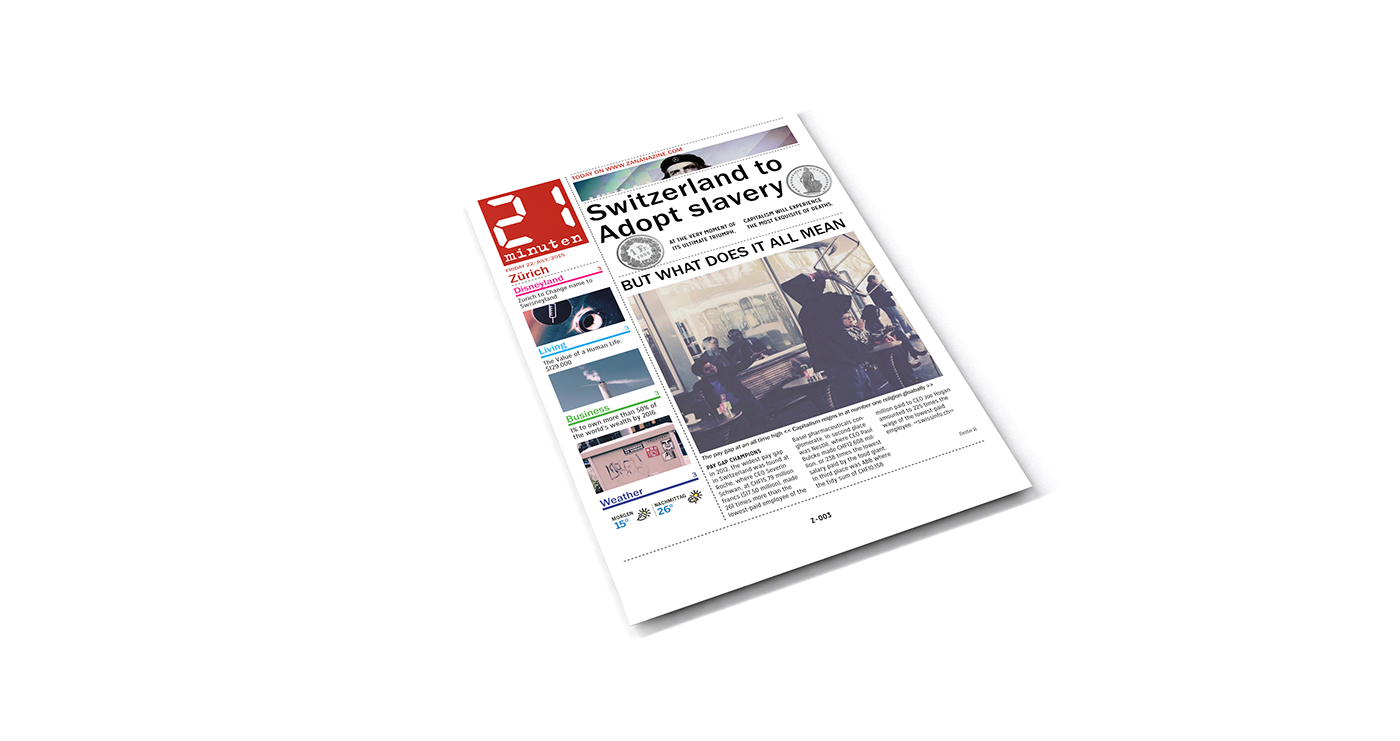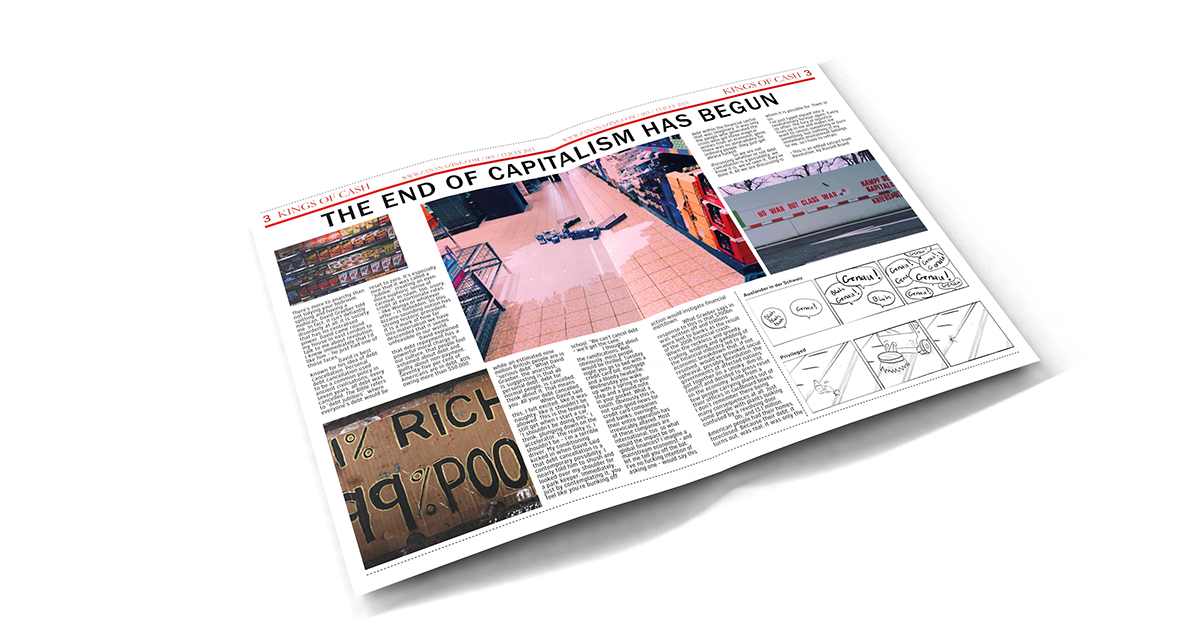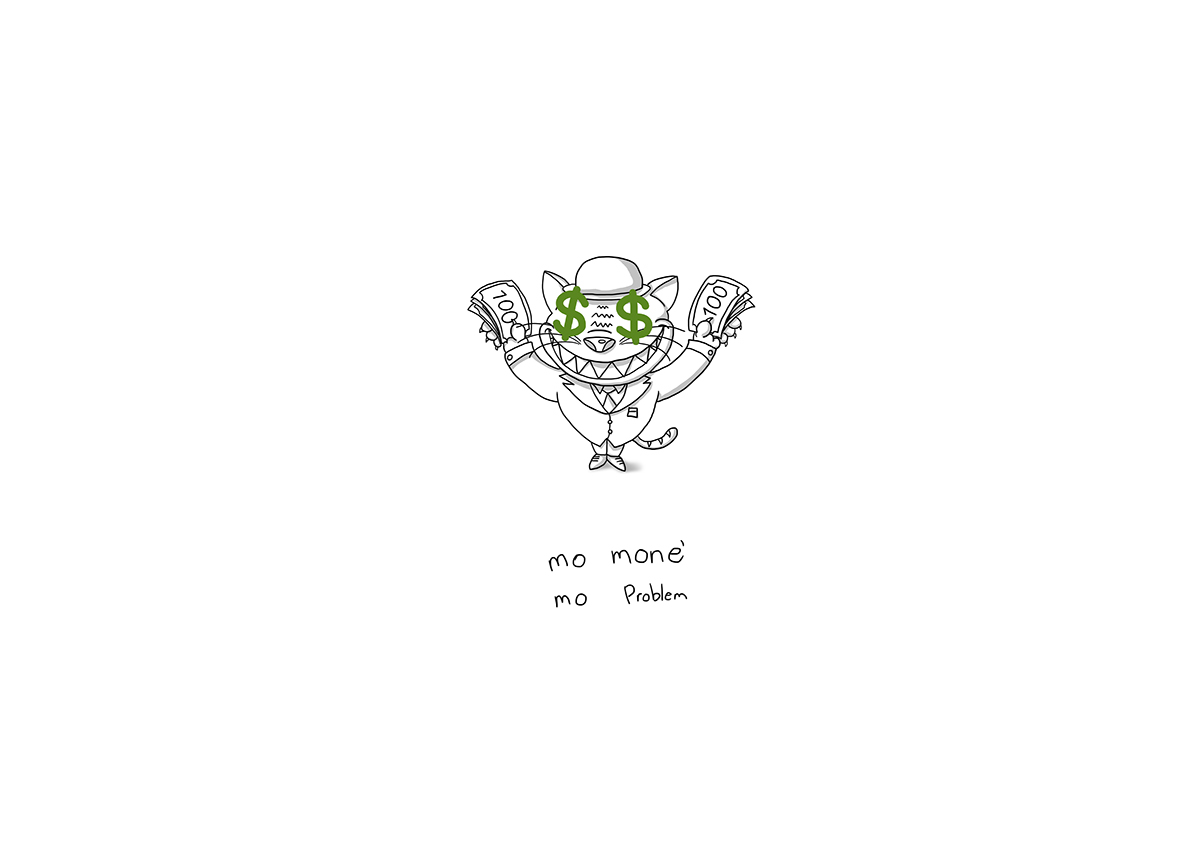





Pay gap champions
in 2012, the widest pay gap in Switzerland was found at Roche, where CEO Severin Schwan, at CHF15,79 million francs ($17,50 million), made 261 times more than the lowest-paid employee of the Basel pharmaceuticals conglomerate. In second place was Nestlé, where CEO Paul Bulcke made CHF12,608 million, or 238 times the lowest salary paid by the food giant. In third place was ABB where the tidy sum of CHF10,158 million paid to CEO Joe Hogan amounted to 225 times the wage of the lowest-paid employee. <<swissinfo.ch>>
The end of capitalism has begun
There’s more to anarchy than not tidying your bedroom, spitting and having a mohican, David Graeber told me. In fact, it isn’t defiantly disorderly at all; it is society that has no centralised power. David came round my house in east London to talk to me about revolution. I knew immediately that I’d like him – he just had one of those faces.
David is best known for his idea of debt cancellation. Personal debt cancellation used to be a common policy in ancient civilisations; every seven years, all debt was cancelled. The Bible refers to “debt jubilees”, where everyone’s debt would be reset to zero. It’s especially nice that it was called a “jubilee”, creating an even more euphoric sense of carnival. In Islam, too, usury, credit at extortionate rates – like Wonga or whatever offer – is forbidden. So this bizarre-sounding notion has strong historic precedent. It is a mark of how far into materialism we have descended that it seems unfeasible in our world.
David explained that debt repayment has a powerful moral charge in our culture, that people feel ashamed about debt and guilty about non-payment. Seventy-five per cent of Americans are in debt, 40% owing more than $50,000, while an estimated nine million British people are in “serious debt”. What David Graeber, the anarchist, is suggesting is that all personal debt, debt for normal people, is cancelled. Think about it. That means you. All your debt cancelled.
When David said this, I felt excited, like it was naughty, like it shouldn’t be allowed. This is the feeling I still get when I start a car. “I shouldn’t be doing this,” I think, plunging down on the accelerator. The reality is, I shouldn’t be – I’m a terrible driver. My conditioning kicked in when David said that debt cancellation is a contemporary possibility. I nearly told him to shush and looked over my shoulder for a park keeper. Immediately, just by contemplating it, you feel like you’re bunking off school. “We can’t cancel debt – we’ll get the cane.” I thought about the ramifications. Well, obviously, most people would be thrilled. Tuesday night you go to bed with a credit card bill, mortgage and a bloody headache; Wednesday you wake up with a spring in your step and a pound note in your pocket. What a touch. Obviously this is not such good news for credit card companies and banks; overnight, their entire operation has irrevocably altered. Most of these companies are international, too, so what would the impact be on global finances? I imagine a mainstream economist – and let me tell you off the bat, I’ve no fucking intention of asking one – would say this action would instigate financial meltdown.
What Graeber says in response to this is that $700bn was written off and trillions were lent to banks as the result of the 2008 financial crash. When the reckless and greedy trading, lending and gambling of the financial industry led to an economic breakdown that, if not resolved, would’ve provoked social upheaval, possibly Revolution, the governments of affected nations got together (in a smoky, dim-lit room?) and decided to press reset on the economy. Aside from a few people carrying plants out of their offices in cardboard boxes, I don’t remember there being many consequences at all. Just some people with plants looking confused by a revolving door.
Oh, and 13.1 million American people had their homes foreclosed. Because their debt, it turns out, was real; it was only the debt within the financial sector that was imaginary. It was only the people who generated the crisis who got three magical wishes from an economic genie. There was no abracadabra for ordinary people, they just got abraca-fucked.
So we are not discussing whether or not debt cancellation is a possibility; we know it is, we’ve seen it, they’ve done it. All we are discussing is whom it is possible for. Them or us. I’ve just typed myself into a revolutionary fervour again. Every so often, the fury at injustice rises up in me and makes me want to smash something or burn something, but nothing in my immediate environment belongs to me, so I have to refrain.
• This is an edited extract from Revolution, by Russell Brand



